-
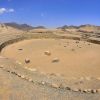 +25 +1
+25 +110 Oldest Civilizations in the World (Updated 2023)
Discover the 10 Oldest Civilizations in the World (Updated 2023) here. Prepare to be transported into a rich & fascinating history on the oldest civilizations that exist.
-
 +15 +1
+15 +1An unsuccessful search for aliens: Is the end of humanity inevitable?
There are several theories as to why we haven’t found extraterrestrial intelligence. A team at NASA has turned its attention to a worrying one.
-
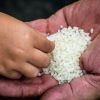 +19 +1
+19 +1Researchers Have a Controversial New Hypothesis For How Civilization First Started
The dawn of human civilization is often pinned down to the rise of farming. As food production grew, so did human populations, trade, and tax.
-
 +13 +1
+13 +1How a Virus Exposed the Myth of Rugged Individualism
Humans evolved to be interdependent, not self-sufficient
-
 +8 +1
+8 +1Best location to choose, to build the first city of a new (re-started) civilization
Response to: "If civilization restarted and you had to pick the best location to build the first city, which location would you choose to ensure a long term strategic and economic advantage?"
-
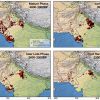 +2 +1
+2 +1New mathematical method shows how climate change led to the fall of an ancient civilization
A Rochester Institute of Technology researcher developed a mathematical method that shows climate change likely caused the rise and fall of an ancient civilization. In an article recently featured in the journal Chaos: An Interdisciplinary Journal of Nonlinear Science, Nishant Malik, assistant professor in RIT’s School of Mathematical Sciences, outlined the new technique he developed and showed how shifting monsoon patterns led to the demise of the Indus Valley Civilization, a Bronze Age civilization contemporary to Mesopotamia and ancient Egypt.
-
 +21 +1
+21 +1Temple Excavation in India Mysteriously Shut Down After Discovering Engraving of Strange “Foreign Face”
During an excavation of an ancient temple to Vishnu in the city of Singuali, Madhya Pradesh, Indian archaeologists found something quite strange. By Sequoyah Kennedy.
-
 +16 +1
+16 +1Empathy is the secret ingredient that makes cooperation – and civilization – possible
Human societies are so prosperous mostly because of how altruistic we are. Unlike other animals, people cooperate even with complete strangers. We share knowledge on Wikipedia, we show up to vote, and we work together to responsibly manage natural resources. But where do these cooperative skills come from and why don’t our selfish instincts overwhelm them? Using a branch of mathematics called evolutionary game theory to explore this feature of human societies...
-
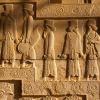 +28 +1
+28 +1The Lost Empire that Ruled the Silk Road
Today, the city of Samarkand in Uzbekistan is relatively remote, known mostly for its magnificent medieval ruins. But over a millennium ago, it was one of the richest cities on the infamous trade route known as the Silk Road. Back in the 600s CE, that route was called simply "the road to Samarkand." By David Aragorn.
-
 +4 +1
+4 +1Yale Assyriologist decodes ‘writing of the heavens’ by ancient stargazers
What would the ancient Babylonians have made of recent celestial events like the blood moon and super moon? Just ask Yale professor Eckart Frahm. By Bess Connolly. (Feb. 22, 2019)
-
 +27 +1
+27 +1Maya ritual cave ‘untouched’ for 1,000 years stuns archaeologists
Exploration of Balamku (Cave of the Jaguar God) reveals ancient religious practices—and may hold clues to the rise and fall of the Maya empire. By Gena Steffens.
-
 +26 +1
+26 +1Are we city dwellers or hunter-gatherers?
For centuries, we have been telling ourselves a simple story about the origins of social inequality. For most of their history, humans lived in tiny egalitarian bands of hunter-gatherers. Then came farming, which brought with it private property, and then the rise of cities which meant the emergence of civilisation properly speaking. Civilisation meant many bad things (wars, taxes, bureaucracy, patriarchy, slavery) but also made possible written literature, science, philosophy and most other great human achievements.
-
 +23 +1
+23 +1The Killing of Hypatia
A fight over all things visible and invisible, featuring practical magic, empire, and terrible men. By Soraya Field Fiorio.
-
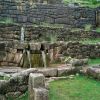 +3 +1
+3 +1We thought the Incas couldn’t write. These knots change everything
The Incas left no doubt that theirs was a sophisticated, technologically savvy civilisation. At its height in the 15th century, it was the largest empire in the Americas, extending almost 5000 kilometres from modern-day Ecuador to Chile. These were the people who built Machu Picchu, a royal estate perched in the clouds, and an extensive network of paved roads complete with suspension bridges crafted from woven grass. But the paradox of the Incas is that despite all this sophistication they never learned to write.
-
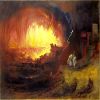 +27 +1
+27 +1An exploding meteor may have wiped out ancient Dead Sea communities
An archaeological site not far from the Dead Sea shows signs of sudden, superheated collapse 3,700 years ago. By Bruce Bower.
-
 +19 +1
+19 +1How technological progress is making it likelier than ever that humans will destroy ourselves
Technological progress has eradicated diseases, helped double life expectancy, reduced starvation and extreme poverty, enabled flight and global communications, and made this generation the richest one in history. It has also made it easier than ever to cause destruction on a massive scale. And because it’s easier for a few destructive actors to use technology to wreak catastrophic damage, humanity may be in trouble.
-
 +12 +1
+12 +1'Oldest Intact Shipwreck Known To Mankind' Found In Depths Of Black Sea
The vessel dates back 2,400 years to the days of ancient Greece. By Colin Dwyer.
-
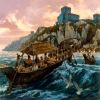 +9 +1
+9 +1The Hidden Coastal Culture of the Ancient Maya
For thousands of years, ancient Maya kings ruled a vast inland empire in Mexico and Belize. But just how inland was it, really? By Erik Vance.
-
 +14 +1
+14 +1How Men Stole Civilization
Civilization is back. But it is no longer the preserve of “Renaissance man” or of “the West,” or even of literate societies. Civilization is a way of talking about human history on the largest scale. From the cave paintings of Lascaux to the latest MoMA exhibition, it binds human history together.
-
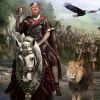 +12 +1
+12 +1How the World Elites are Going to Betray Us: Lessons from Roman History
Emperor Honorius had run away from Rome, settling in Ravenna, with ships ready to take him to safety in Byzantium if things were to get really bad. By Ugo Bardi.
Submit a link
Start a discussion




















